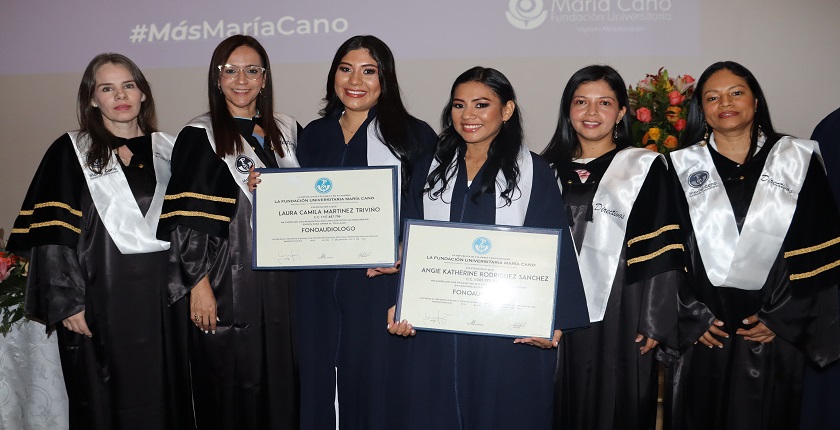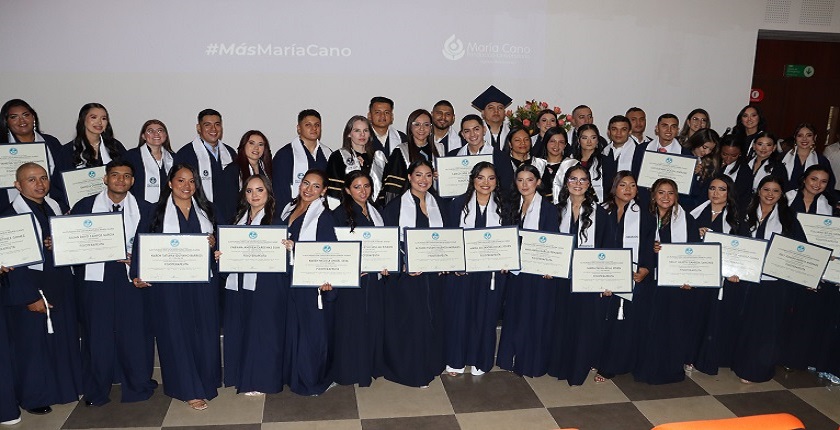The María Cano University Foundation, Neiva campus, held its public graduation ceremony where new professionals from the Speech Therapy and Physical Therapy programs received their degrees. The event, which brought together family members, faculty, and administrators, marked a significant milestone for both the graduates and the southern region of the country.
With pride and solemnity, the graduates received their diplomas, officially recognizing them as highly trained professionals ready to face the challenges of the healthcare sector. During the ceremony, special emphasis was placed on the effort, dedication, and service-oriented spirit that define the new speech therapists and physical therapists, who are now called to actively contribute to the well-being and quality of life of the population.
In her speech, Diana María Salazar, Director of the Neiva campus, stated: “Today, we present to Huila’s society a group of professionals committed to comprehensive health. In regions like ours, where the need for rehabilitative and communicative care is so pressing, their work will be essential in closing gaps and ensuring dignified and humane care.”

The Speech Therapy and Physical Therapy programs have gained special relevance in recent years, especially in contexts where the aftermath of neurological diseases, speech disorders, physical injuries, and chronic conditions require specialized care. Their work not only impacts patients on an individual level but also strengthens the public health system by providing preventive, therapeutic, and educational support.
In a region like Huila, where much of the population accesses health services in rural and semi-urban areas, having locally trained professionals represents an opportunity to decentralize care, improve coverage, and foster community-based rehabilitation and inclusion processes.
The María Cano University Foundation continues to contribute to Colombian society by educating ethical, compassionate professionals with a strong social conscience—individuals who not only transform lives but also help build the social fabric in their communities. The new graduates now begin their professional journey with the mission of becoming agents of change, carrying with them institutional values and the desire to support the social and human development of the country’s southern region.

